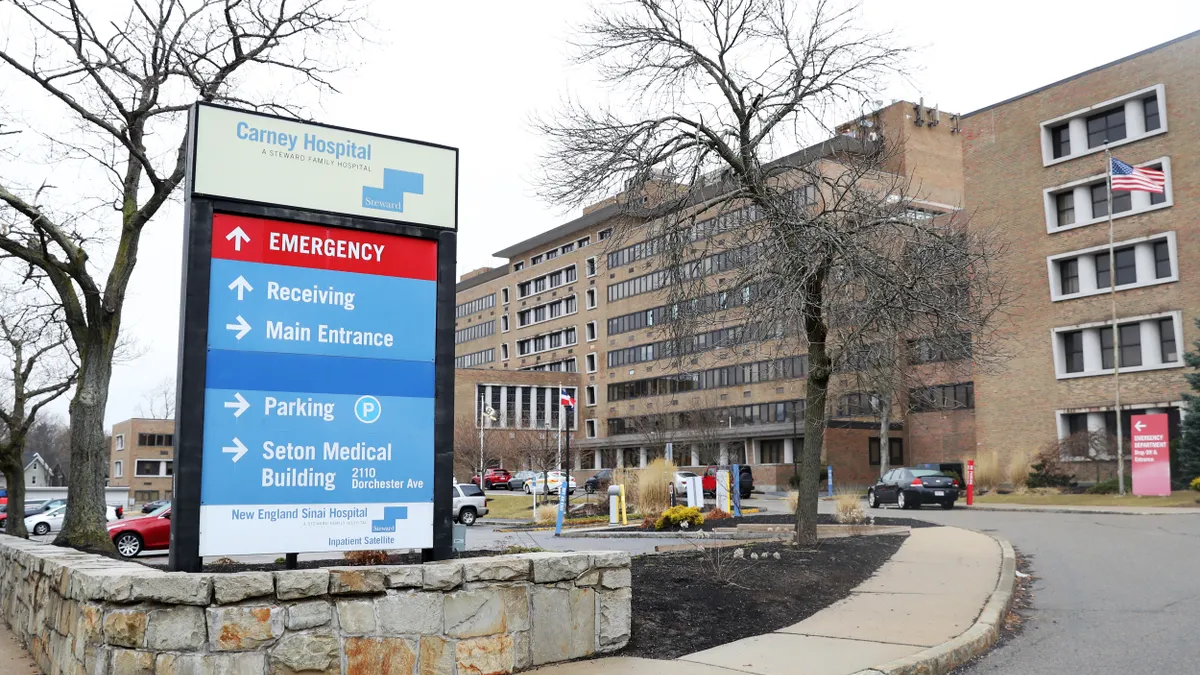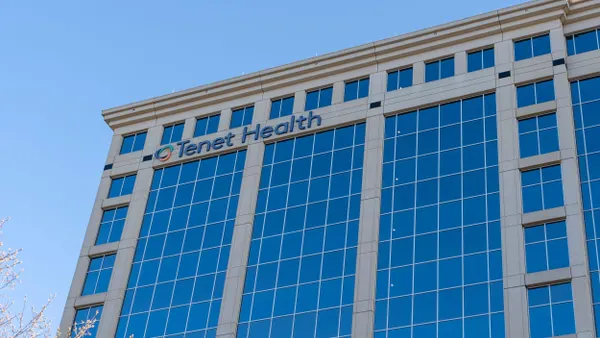Dive Brief:
- Three federal agencies released a report on Wednesday warning that private equity ownership poses “new and unique risks” that extend beyond those of general industry consolidation.
- During a nearly year-long investigation, the Federal Trade Commission, the Justice Department and the HHS reviewed over 2,000 public comments about the impact of private equity and consolidation on healthcare delivery. The report highlights growing patient and provider concern about private equity-backed care, such as higher consumer prices, process changes and staffing cuts.
- The agencies implored Congress and state lawmakers to consider policies that would strengthen oversight of the industry, including by lowering the federal threshold for reporting mergers and acquisitions and expanding the Biden administration’s rule that mandates more transparency in nursing home ownership.
Dive Insight:
Private equity has investments in nearly every area of healthcare delivery, according to the report. The firms own physician practices, emergency room staffing companies, nursing homes, mental health and substance use facilities, and hospitals.
In some cases, the firms’ grip on the market runs deep. For example, the report cites one study that estimates more than 40% of the country’s emergency rooms are managed by private-equity backed staffing companies.
The private investment funds purchase assets with an intent to sell them at a profit within about four to seven years. Case studies indicate healthcare investments are often lucrative for the firms. Cerberus Capital Management netted $800 million during its ownership of for-profit health system Steward Health Care, and Apollo Global Management made north of $1.5 billion in a single transaction in 2021 when it sold Lifepoint Health to itself.
Left unchecked, private equity investors will likely continue to flock to the profitable industry, the agencies warn.
Critics have accused the firms of financially stripping their assets. Bankruptcies are more common among companies with private equity ties, according to the report. In the past 12 months alone, two major health systems with private equity roots — Prospect Medical Holdings and Steward Health Care — have filed for Chapter 11 bankruptcy.
Studies have also shown patients and providers can suffer from private equity ownership, including through increased falls, higher costs for patients and more employee turnover. One study published this month found patients at hospitals acquired by private equity firms were less likely to recommend their hospital and less likely to say providers were responsive to their needs.
Last March, the three agencies sought public comment about how private equity investment and consolidation has impacted care quality. The multi-agency probe came alongside several congressional investigations into the firms, including a Senate Budget Committee investigation into private equity giants Apollo Global Management and Leonard Green & Partners.
In comments to the agency, providers and patients expressed pushback to increased private equity ownership.
“The results from this [request for information] indicate plainly that the American public is dissatisfied with ongoing trends in the healthcare sector,” the report said.
The investigation found consumer dissatisfaction with higher prices and reduced quality related to consolidation broadly. However, the report said private equity’s role in healthcare transactions in particular “seems to have struck a nerve in the public.”
The report said private equity firms used dividend recapitalizations, sale leaseback transactions and roll-up acquisitions to strengthen their market position — to the detriment of their healthcare assets.
“In theory, private investment in health care services could lead to increases in output, reduced prices, and improved quality, but the comments we received—which are consistent with the growing body of research—suggest that the opposite is true,” the agencies said. “The harmful effects of private equity in the health care delivery system deserves ongoing scrutiny and greater research.”
The agencies join a growing chorus calling for more oversight of private equity firms.
“HHS, DOJ and FTC must continue to monitor and address these issues, welcome partnerships with states and Congress to prevent harm from further consolidation, and collaborate with public and private partners in identifying effective remedies,” the report said.
Some commenters suggested the CMS extend a 2023 policy increasing transparency of nursing home ownership to other healthcare companies and transactions.
Others suggested the government lower the financial threshold for reporting mergers or acquisitions to the FTC or DOJ. Lowering the notification threshold would give the federal government more oversight into serial mergers and acquisitions used by private equity firms.
However, the FTC is moving in the opposite direction. The report comes days after the FTC announced it will increase the pre-merger notification threshold this year from $119.5 million to $126.4 million.













